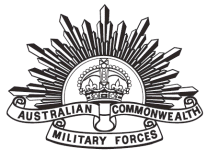

| Regimental number | 506 |
| Place of birth | The Manse, Middle Lambrook, Somerset, England |
| School | Public School, England |
| Age on arrival in Australia | 22 |
| Religion | Congregational |
| Address | Corryong, Victoria |
| Marital status | Single |
| Age at embarkation | 24 |
| Next of kin | Father, G. Say, Middle Lambrook, South Petherton, Somerset, England |
| Previous military service | Served in local volunteer force (Rifle Club, 18 months) in Australia. |
| Enlistment date | |
| Rank on enlistment | Private |
| Unit name | 3rd Battalion C Company |
| AWM Embarkation Roll number | 23/20/1 |
| Embarkation details | Unit embarked from Sydney, New South Wales, on board HMAT A14 Euripides on |
| Rank from Nominal Roll | Corporal |
| Unit from Nominal Roll | 1st Brigade Machine Gun Company |
| Fate | Killed in Action |
| Place of death or wounding | France |
| Age at death | 25 |
| Age at death from cemetery records | 27 |
| Place of burial | No known grave |
| Commemoration details | The Ypres (Menin Gate) Memorial (Panel 31), Belgium The Menin Gate Memorial (so named because the road led to the town of Menin) was constructed on the site of a gateway in the eastern walls of the old Flemish town of Ypres, Belgium, where hundreds of thousands of allied troops passed on their way to the front, the Ypres salient, the site from April 1915 to the end of the war of some of the fiercest fighting of the war. The Memorial was conceived as a monument to the 350,000 men of the British Empire who fought in the campaign. Inside the arch, on tablets of Portland stone, are inscribed the names of 56,000 men, including 6,178 Australians, who served in the Ypres campaign and who have no known grave. The opening of the Menin Gate Memorial on 24 July 1927 so moved the Australian artist Will Longstaff that he painted 'The Menin Gate at Midnight', which portrays a ghostly army of the dead marching past the Menin Gate. The painting now hangs in the Australian War Memorial, Canberra, at the entrance of which are two medieval stone lions presented to the Memorial by the City of Ypres in 1936. Since the 1930s, with the brief interval of the German occupation in the Second World War, the City of Ypres has conducted a ceremony at the Memorial at dusk each evening to commemorate those who died in the Ypres campaign. |
| Panel number, Roll of Honour, Australian War Memorial | 179 |
| Miscellaneous information from cemetery records | Parents: George and Elizabeth SAY, The Manse, Middle Lambrook, South Petherton, Somerset, England |
| Medals |
Military Medal 'During the attack on the enemy position East of YPRES on the morning of 4th October, 1917, Sgt. SAY was with a Section of Machine Guns, his O.C. and the other Sergeant being casualties thus leaving him in charge of the Section in the early stage of the attack. He at once took charge and by good handling got his guns into position and reported in writing to Company Headquarters. This N.C.O. by his personal bravery and cheerfulness, greatly encouraged his men under very trying circumstances. He remained in charge of the Section till relieved on the night of 5th October.'
Source: 'Commonwealth Gazette' No. 31 Date: |
| Family/military connections | Brother: 394 Pte Douglas Stanley SAY, 12th Bn, died of wounds, 28 April 1915. |
| Other details |
War service: Egypt, Gallipoli, Western Front Proceeded from Alexandria to join the Mediterranean Expeditionary Force, 5 April 1915, Gallipoli campaign. Reported missing in action, 29 April 1915. Wounded in action, 10 July 1915; rejoined unit, 19 July 1915. Disembarked Alexandria, 29 December 1915 (general Gallipoli evacuation). Taken on strength, 1st Machine Gun Company, 12 March 1916. Proceeded from Alexandria to join the British Expeditionary Force, 22 March 1916; disembarked Marseilles, 28 March 1916. Admitted to 2nd Field Ambulance, 23 June 1916 (bronchitis); transferred to Divisional Rest Station, 24 June 1916; discharged to duty, 9 July 1916. Promoted Temporary Corporal, 29 July 1916; Corporal, 29 July 1916. Admitted to 2nd Field Ambulance, 28 November 916 (laryngitis); transferred to New Zealand Stationary Hospital,28 November 1916; to No. 8 Stationary Hospital, Wimereux, 30 November 1916; to Base Details, 8 December 1916; rejoined unit, 2 January 1917. Promoted Sergeant, 7 January 1917. On leave to Paris, 4 September 1917; rejoined unit, 10 September 1917. On leave to England, 14 October 1917; rejoined unit, 1 November 1917. Killed in action, Belgium, 7 November 1917. Medals: Military Medal, 1914-15 Star, British War Medal, Victory Medal |